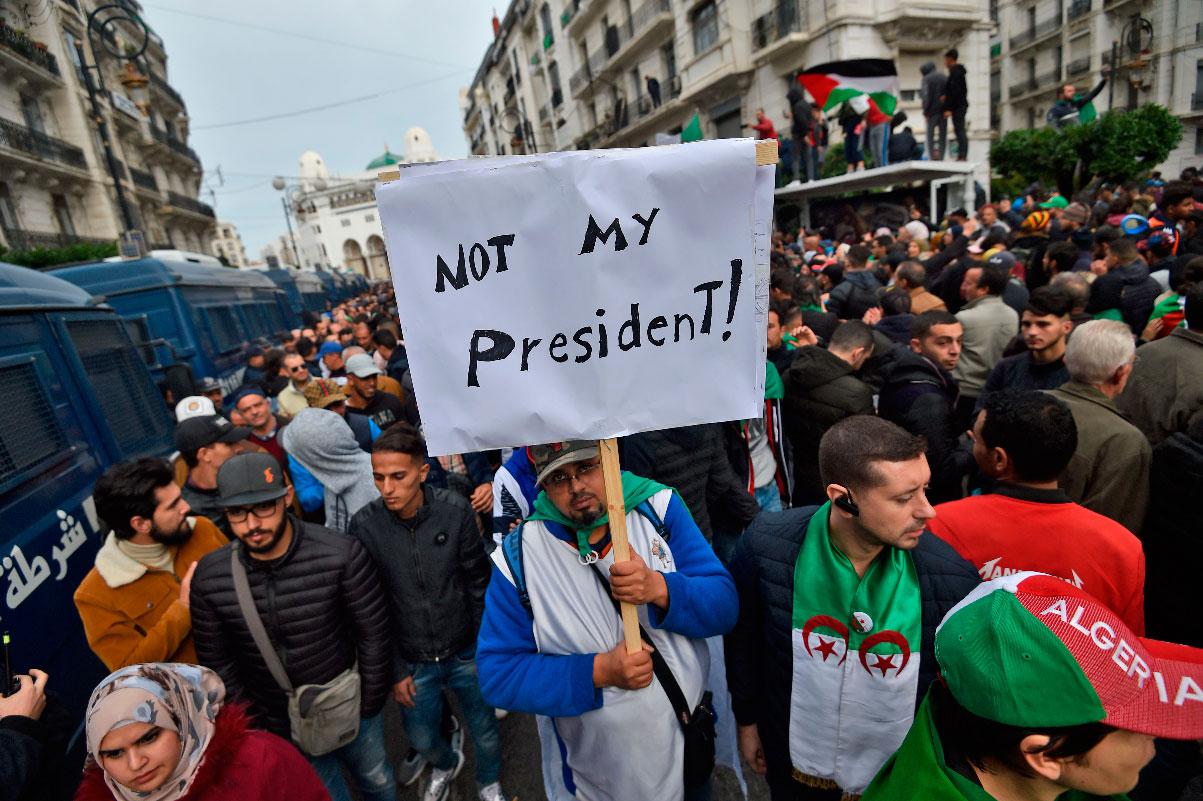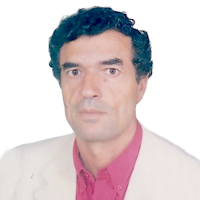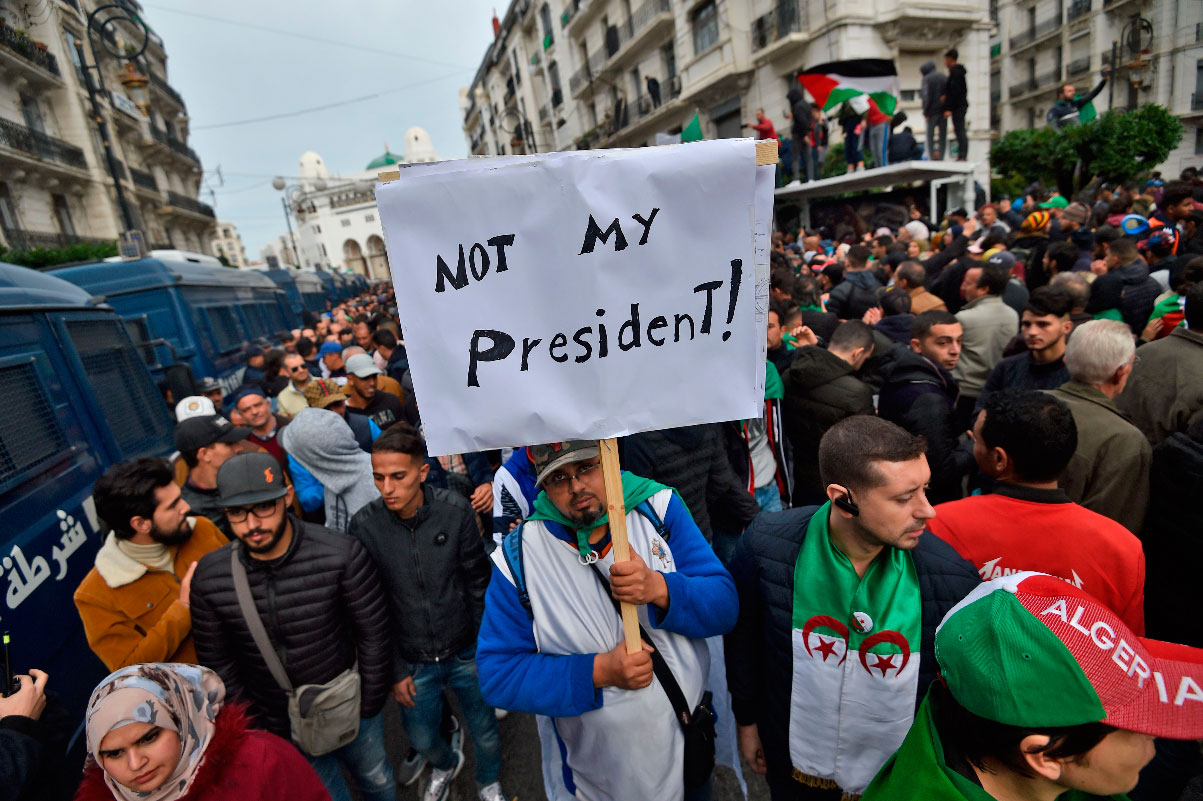New Algerian president struggles for credibility as protests continue
TUNIS - Algeria's newly elected President Abdelmadjid Tebboune offered "dialogue and an outstretched hand" to pro-democracy protesters, who, nonetheless, vowed not to let up the movement that ousted his predecessor eight months ago and slammed the new leader as a "wolf" of the regime.
"Al Intikhab mouzawara. Intikhatkoum maa ethimnaah. Raaiskoum maa yahkimnaach” (“The vote was rigged. We are not concerned with your elections. Your president will not rule us”), chanted protesters in Algiers December 13 after authorities announced that Tebboune, a former prime minister, had won the elections.
Protesters flooded the streets of Algiers in a display of mass opposition to the elections and the new president. Similar protests took place around the country many chanting slogans such as "We said no to the vote with the gangs. They brought us five wolves."
"We are the sons of Amirouche. We have no fear and we will keep up protesting," others said in reference to independence war hero Colonel Amirouche Ait Hamouda.
It was the 43rd consecutive Friday that protesters crowded streets in Algiers and other cities to push for "genuine democracy" that would end the military's dominant political influence.
The large crowds of protesters in Algiers and the strong momentum of the pro-democracy movement elsewhere, despite heavy police presence, suggested that Tebboune will struggle to end the unrest that ended the 20-year regime of President Abdelaziz Bouteflika on April 2.
Tebboune, 74, tried to portray himself as "one of the victims" of the regime, saying his son Khaled had been detained on “trumped-up charges” and he had been fired from his government post for opposing corruption. He said he had shown integrity as a technocrat fighting against the political influence of powerful business tycoons before he was sacked as prime minister in 2017.
Tebboune had been considered the favourite to win the election because of his reportedly close ties to General Ahmed Gaid Salah, the army chief who was the driving force behind the elections. However, days before the vote, local media touted Azzedine Mihoubi, a writer and former communications and culture minister, as the military’s preferred candidate.
Algeria's recently created Independent National Electoral Authority, designed to help the process gain transparency in a country where leaders are thought to have been chosen by the military in advance, declared Tebboune the winner with 58% of the vote.
The four other candidates also have ties to Bouteflika's regime. Former Islamist leader and Tourism Minister Abdelkader Bengrina came second with 17.4%, trailed by former Prime Minister Ali Benflis at 10.5%.
Mihoubi, who was fast-tracked as the new leader of the National Democratic Rally party after its secretary-general, former Prime Minister Ahmed Ouyahia, was arrested and sentenced to 15 years in in jail days before the elections, won 7.2%.
Turnout was 41%, election authority head Mohamed Charfi, compared to around 52% in 2014. He called the turnout "satisfactory." Observers, however, said turnout could actually have been as low as 10%, citing the nearly "zero vote" in the restive Berber-speaking Kabylie region.
At least 20 protesters were injured there in clashes, with police protecting the few polling stations that opened in the area.
Protesters waved placards stating: "We are proud of the beautiful, free and rebellious Kabylie," in a sign the movement was strengthening national bonds between Algerians from various regions and cultures.
Bouteflika voted through his brother, Nasser, who said the former long-time leader "remains a citizen with all his rights."
Bouteflika, 82, has reportedly retired to his private home in the hills of Algiers. He has used a wheelchair since suffering a stroke in 2013 and was rarely seen in public during the final years of his presidency.
Protesters were pressing for him to be prosecuted alongside other former officials for alleged graft.
The army insisted that the only way to move the country forward after Bouteflika's ouster was to elect a new president but protesters dismissed the elections as a sham intended to keep the ruling elite in power.
"The future of Algeria is not tied to the elections of December 12," said leading protest figure Mustapha Bouchachi as he demonstrated in Algiers. "Continuing with the Hirak (pro-democracy movement) will usher in a future for Algeria to bring about a genuine democracy."
Economist Smail Lalmas, another protest leader, said: "The elections showed the regime has not changed in the ways of dealing with the respect of the willingness of the Algerians. The regime repeated what it has always done: Rig the votes."
"We will also pursue the protests to impose change as the regime keeps up with its old habits," he added.
Analysts said the large protests December 13 indicate Tebboune will face an uphill battle addressing Algeria's socio-economic problems, including high unemployment and a declining standard of living that is likely to worsen with a planned 9% cut in public sending next year. There is also concern about the country's hydrocarbon-dependent economy as key oil earnings fall.
Tebboune's offer of "serious dialogue" with protest figures and his hint at freeing detainees keeps the door open for compromise, however.
He hailed the Hirak for toppling Bouteflika and "putting Algeria back on the track of legitimacy and protecting the homeland from adventures and plots that threatened the future of the Algerian people."
Lamine Ghanmi is a veteran Reuters journalist. He has covered North Africa for decades and is based in Tunis.
This article was originally published in The Arab Weekly.




